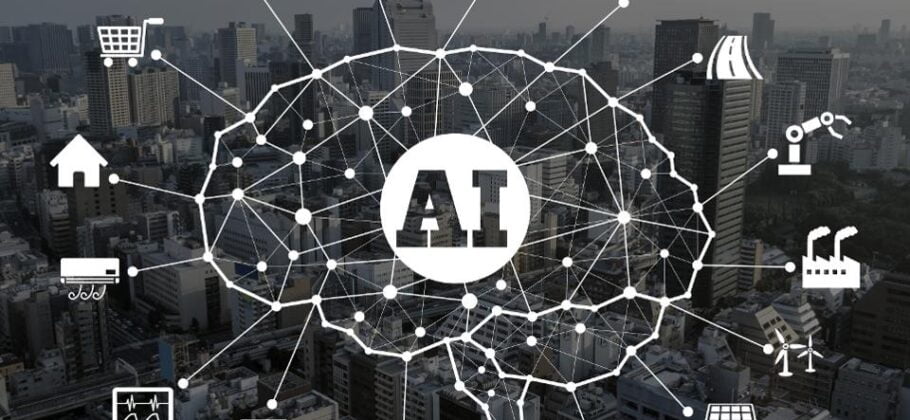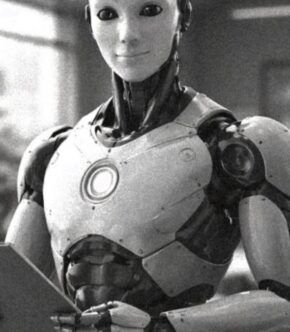A day doesn’t go by where you don’t read or hear how artificial intelligence is here to stay and may change the way of life, particularly the way you work. Technological advances and achievements have always been happening, especially in the United States, where it seems not to long ago we had the computer revolution, a generational industrial advance that usually only happens every one hundred years. Now quickly upon us is generative artificial intelligence, which experts and savants say may make the computer revolution look like discovering the wheel.
The first part of this two-part article will delve into what jobs and industries AI is most likely to shake up, with the second part being those that will seemingly always require a human touch. Artificial intelligence is a rapidly evolving technology that has the potential to transform various aspects of human life, from health care to entertainment. However, AI also poses a significant challenge to many existing jobs, especially those that involve repetitive, routine, or low-skill tasks. Interestingly enough, some studies suggest that while millions of jobs will be lost to AI, millions more will be created.
Like any change in the business and employment cycle, the workplace will have to shift its skill set and adjust to the new market place. According to a recent report by the World Economic Forum, AI could displace 85 million jobs by 2025, while creating 97 million new ones. According to data from Statistica, Automation could eliminate some 73 million jobs in the U.S. alone, but the number in places like China and India is staggering.
While AI driven automation is efficient, companies need to look at what should and shouldn’t be automated based somewhat on consumer preference. According to Stefano Puntoni, marketing professor at the Wharton School at the University of Pennsylvania, “Companies should shift the conversation from what can be automated to what should be automated.” But which jobs are most at risk of being replaced by AI? And which ones are more likely to survive or thrive in the age of automation? Let’s take a look at some of the leading candidates to be replaced by an AI automated society.
Tech jobs (Coders, computer programmers, software engineers, data analysts)
How ironic that the very ones who brought us this technology will be some of the ones to go. Coding and computer programming are in-demand skills, but it’s possible that ChatGPT and similar AI tools may fill in some of the gaps in the near future. According to Anu Madgavkar, a partner at the McKinsey Global Institute, “Tech jobs such as software developers, web developers, computer programmers, coders, and data scientists are pretty amenable to AI technologies displacing more of their work.”
Legal industry jobs (paralegals, legal assistants)
Legal industry jobs that involve researching, drafting, or reviewing documents could also be automated by AI. ChatGPT can answer legal questions, generate contracts, and summarize case law with ease. It can also analyze large volumes of data and identify patterns or anomalies. Some law firms have already started using AI tools to streamline their work processes and reduce costs. For example, Baker McKenzie uses an AI platform called Luminance to review contracts and identify risks.
Market research analysts
Market research analysts collect and analyze data on consumer behavior, preferences, and trends. They use various methods like surveys, interviews, focus groups, and online platforms to gather information. However, AI could potentially replace some of their tasks. Currently, a Microsoft Bing AI application could generate survey questions, analyze responses, and create reports with insights and recommendations. It can also use natural language processing and sentiment analysis to understand customer feedback and opinions.
Teachers
The mean faced teachers unions around the country are not going to like this one. Next time they want to lockdown schools and stay at home a ChatGPT program will be happy to step in. While it’s hard to envision a physical classroom environment without a human involved, there are certainly some aspects of the job that could be automated by AI. AI can create lesson plans, quizzes, assignments, and feedback for students. It can also answer questions, explain concepts, and provide guidance. Some schools have already started using AI tools to enhance their teaching and learning outcomes. For example, Georgia Tech uses an AI assistant called Jill Watson to help students with their online courses.
Financial Traders
It’s been said for quite a while that trading desks across Wall Street will be a shell of their current selves in a few years. This has yet to transpire, but it is possible. As we know, traders buy and sell stocks, bonds, currencies, commodities, and other financial instruments in order to make profits. They use various strategies, tools, and indicators to analyze market trends and make decisions. AI has tools that could potentially outperform them in some aspects. AI can generate trading signals, execute trades, and optimize portfolios rather easily. It can also use machine learning and deep learning to learn from historical data and adapt to changing market conditions. Algorithms currently account for the majority of trading volume in the markets, so it only makes sense that this trend will continue.
Customer service reps
AI has already begun to infiltrate the customer service industry, and many will say for the better. When a human touch isn’t needed, AI customer support in the form of chat bots, etc. are all you really need. A human customer service rep will interact with customers via phone, email, chat, or social media to provide information, answer questions, resolve issues, or handle complaints. AI could potentially replace some of these tasks. It can also use natural language understanding and natural language generation to understand customer queries and generate appropriate responses.
Next up, jobs that will probably make the AI cut list for now!











